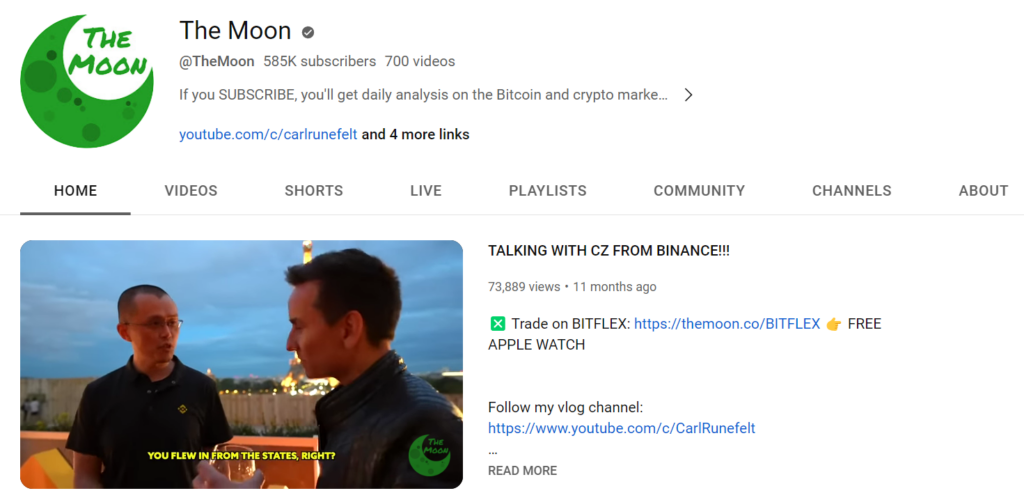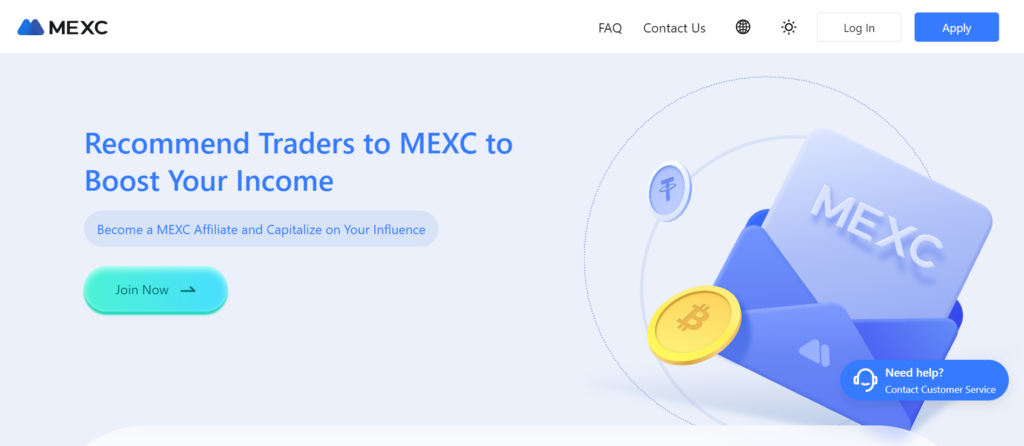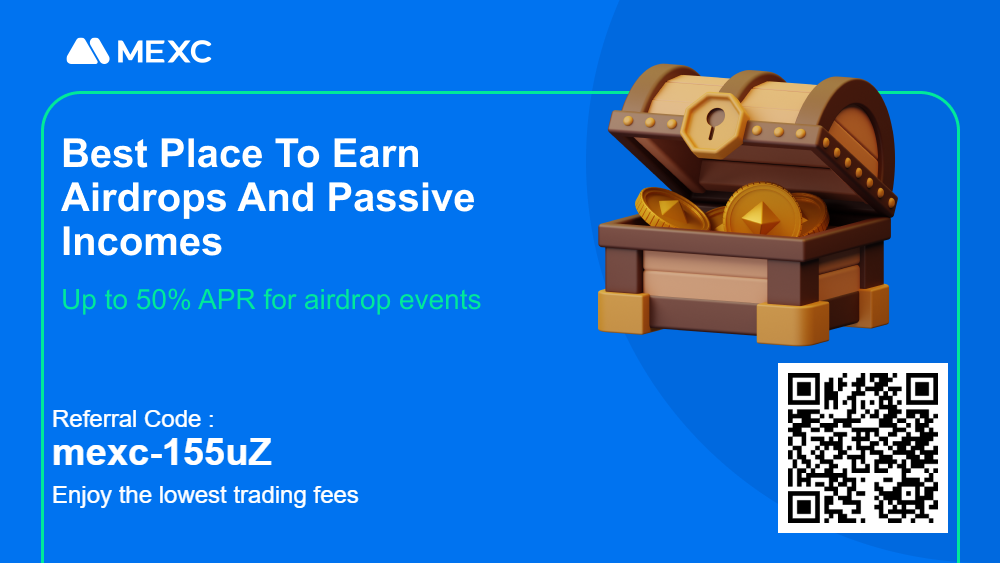In the vast realm of affiliate marketing, one niche has emerged as a golden opportunity for beginners, especially those without a website: the crypto industry. As digital currencies continue to gain traction and reshape the financial landscape, they offer a unique and lucrative avenue for affiliate marketers. This article will guide you through the best affiliate programs for beginners without a website in the crypto space.
What is Affiliate Marketing?
Affiliate marketing is a digital marketing strategy where individuals, known as affiliates, promote products or services for other companies. In return, they earn a commission for each sale or action (like a sign-up or click) that results from their promotional efforts. Essentially, it’s a win-win partnership: companies gain increased visibility and sales, while affiliates earn a share of the profits without having to create or manage the product themselves.
Why Crypto is the Best Niche for Affiliate Marketing Without a Website

The crypto industry, with its dynamic nature and global appeal, has characteristics that make it exceptionally suited for affiliate marketing, especially for those without a traditional website. Here’s a deeper dive into why:
Universal Appeal and Accessibility:
- What it Means: Cryptocurrencies are not bound by geographical or political borders. This global nature means that anyone, anywhere, can engage with crypto platforms and services.
- Impact on Affiliates: Affiliates can target a worldwide audience without the need for region-specific content or strategies. This global reach is accessible through various platforms, not just websites.
High Engagement and Active Communities:
- What it Means: The crypto community is known for its passion and active online presence. Forums, social media groups, and chat platforms buzz with crypto discussions 24/7.
- Impact on Affiliates: Affiliates have a plethora of platforms to engage with potential leads. These active communities provide immediate feedback, allowing for real-time strategy adjustments.
Decentralized Nature of Crypto:
- What it Means: Cryptocurrencies and many related platforms operate on decentralized networks. This ethos of decentralization aligns with the idea of promoting without a centralized platform like a website.
- Impact on Affiliates: Affiliates can leverage this decentralized spirit by promoting on peer-to-peer platforms, social media, and community forums, resonating with the core values of the crypto audience.
Rapid Evolution and News Cycle:
- What it Means: The crypto industry is ever-evolving, with new developments, coins, and technologies emerging regularly.
- Impact on Affiliates: This dynamic nature means there’s always fresh content to discuss and promote. Platforms like Twitter or Telegram, which are real-time and fast-paced, become ideal for such timely promotions.
Diverse Range of Products and Services:
- What it Means: Beyond cryptocurrencies themselves, there’s a vast ecosystem of wallets, exchanges, DeFi platforms, NFT marketplaces, and more.
- Impact on Affiliates: Affiliates have a wide range of products and services to promote, allowing for diversified income streams. Each of these can be effectively marketed across different non-website platforms.
Trust and Credibility through Direct Engagement:
- What it Means: In the crypto world, trust is paramount. Platforms that allow direct engagement, like social media or forums, enable affiliates to build trust through genuine interactions.
- Impact on Affiliates: By being active, responsive, and genuine in these communities, affiliates can build a loyal follower base, making their promotions more effective.
Why Beginners Without a Website Can Still Succeed

In the digital age, having a website has often been seen as the cornerstone of online marketing. However, the landscape of affiliate marketing, especially in the crypto niche, has evolved in such a way that even beginners without a website can carve out a successful path for themselves. Here’s why:
Diverse Platforms
Beyond traditional websites, there are numerous platforms where affiliate links can be shared. Social media channels, video platforms like YouTube, and messaging apps offer vast audiences that can be tapped into. Each platform has its unique audience, and with the right strategy, beginners can effectively promote affiliate products.
Direct Engagement
Without a website, affiliates often engage directly with their audience, be it through comments, direct messages, or community forums. This direct interaction can foster trust and build a loyal follower base, making promotions more effective.
Cost-Effective
Maintaining a website involves costs – domain registration, hosting, design, and more. Beginners can start their affiliate journey without these initial expenses, allowing them to focus solely on their marketing strategies and content creation.
Rapid Changes in Digital Consumption
The way people consume content is constantly changing. While websites remain important, many users now prefer bite-sized content on platforms like TikTok, Instagram stories, or podcast snippets. Affiliates can leverage these trends to reach potential customers in innovative ways.
Affiliate Support
Many affiliate programs, recognizing the potential of diverse promotional methods, offer tools, training, and resources specifically designed for those without a website. This support can guide beginners in maximizing their efforts across different platforms.
In essence, while websites can be powerful tools, they are just one of many avenues available to affiliates. The key is understanding your audience, choosing the right platforms, and delivering valuable content consistently.
Success Stories: Case Studies of Individuals Succeeding Without a Website
Profesor Twitter Triumph:

Profesor started as a crypto enthusiast who shared his journey of learning about different cryptocurrencies on Twitter. Without a website, he relied solely on engaging tweets, infographics, and short video clips. As his followers grew, he began incorporating affiliate links from various crypto platforms, especially Binance. Within a few years, Profesor was not only recognized as a crypto influencer but was also earning a substantial income from his affiliate promotions.
Moon’s YouTube Journey

TheMoon didn’t have a website, but he had a passion for explaining complex crypto concepts in simple terms. He started a YouTube channel where he uploaded tutorials, reviews, and news updates about the crypto world. By integrating affiliate links in his video descriptions and occasionally mentioning them in his videos, he managed to generate a steady stream of income. His channel now boasts over 585,000 subscribers.
Raj’s Reddit Rundown
Raj became an active member of several crypto-related subreddits. Instead of directly promoting affiliate links, he focused on providing genuine value, answering questions, and sharing insights. Over time, he gained the trust of the community. When he did share affiliate links, they were welcomed because of the credibility he had built. Raj’s approach showcases that even on platforms where direct promotions can be frowned upon, there’s a way to succeed with authenticity and patience.
Linda’s Instagram Insights
Linda utilized the power of Instagram stories and posts to share bite-sized information about crypto trends, news, and tutorials. By using visually appealing graphics and collaborating with other crypto influencers for shoutouts, she built a substantial following. Her bio contained affiliate links to crypto platforms, and she also occasionally shared them in her stories with swipe-up features. Linda’s success underscores the potential of visual platforms for crypto promotions.
These success stories highlight that with dedication, understanding of the crypto space, and effective use of platforms, one doesn’t need a traditional website to succeed in affiliate marketing in the crypto niche.
5 Best Affiliate Programs for Beginners Without a Website

By leveraging these crypto affiliate programs, beginners without a website can tap into the lucrative world of crypto affiliate marketing and earn substantial commissions.
| Affiliate Program | Commission Rate | Timeless Rewards | Key Features |
|---|---|---|---|
| MEXC | Up to 70% | Yes | MEXC stands out due to its robust commission structure and transparent reporting. It offers up to 70% in commissions on your referrals’ trading fees, one of the highest rates in the industry. Additionally, you can earn an extra 10% from the earnings of any sub-affiliates you refer. |
| Bybit | Up to 50% | Yes | Bybit offers an affiliate exclusive portal to view earnings and new products. An extra 10% is added if your referred user also becomes an affiliate. |
| BingX | Up to 50% | Yes | BingX offers a competitive commission ratio that is close to industry standards. They provide an exclusive account with data transparency and clear transaction details. |
| Coinex | Up to 50% | Yes | Coinex offers a moderate commission rate, making it suitable for those new to crypto affiliate programs. |
| OKX | Up to 50% | Yes | OKX offers a unique referral program with mystery boxes. They provide detailed rules and conditions for earning rewards, with potential rewards up to $10,000. |
Tips for Promoting Crypto Affiliate Links Without a Website

Leverage Social Media Platforms:
- Twitter Threads: Create informative threads explaining complex crypto concepts. At the end of the thread, you can subtly introduce your affiliate link as a recommended resource.
- Instagram Stories & IGTV: Use Instagram’s visual nature to create engaging stories about crypto updates. IGTV can be used for longer content, like tutorials. Always remember to place your affiliate link in the bio or use the swipe-up feature if you have it.
- Facebook Groups: Join crypto-focused groups and actively participate in discussions. Once you’ve established credibility, you can occasionally share your affiliate links when they add value to a conversation.
Engage in Video Content Creation:
- YouTube: Start a channel focusing on crypto reviews, news, or tutorials. Use annotations, pinned comments, and video descriptions to share your affiliate links.
- TikTok: The short-form video platform is booming. Create quick tips, news updates, or crypto explainers and incorporate your affiliate links in the video description.
For those interested in expanding their affiliate journey, exploring YouTube affiliate programs can provide additional opportunities.
Participate Actively in Crypto Forums and Communities:
- Reddit & Bitcointalk: These platforms have vast crypto communities. Focus on providing value first. Once you’ve built trust, you can share your affiliate links in a way that doesn’t come off as spammy.
- Quora: Answer crypto-related questions and, where relevant, include your affiliate link.
Email Marketing:
- Even without a website, you can build an email list. Use platforms like Substack or Revue to share weekly crypto insights and news. Incorporate your affiliate links naturally within the content or as recommended resources.
Collaborate with Crypto Influencers:
- If you don’t have a large following initially, collaborate with influencers in the crypto space. They can introduce your content (and your affiliate links) to a broader audience.
Always Prioritize Value Over Promotion:
- Regardless of the platform, always ensure you’re providing genuine value to your audience. Whether it’s an insightful tweet, an informative video, or a detailed answer on a forum, prioritize helping and educating your audience. When you do introduce your affiliate links, they’ll be more receptive.
Stay Updated and Transparent:
- The crypto world evolves rapidly. Always stay updated with the latest news and trends. Additionally, be transparent about your affiliate links, letting your audience know that you may earn a commission if they use them. This builds trust and credibility.
By employing these strategies and always keeping the audience’s needs at the forefront, affiliates can effectively promote their crypto links without the need for a traditional website.
Common Mistakes to Avoid as a Crypto Affiliate Beginner
Not Understanding the Product or Platform:
- Why it’s a Mistake: Promoting a product or platform without a deep understanding can lead to misinformation, which can damage your credibility.
- Solution: Take the time to research and use the product or platform you’re promoting. Understand its features, benefits, and potential drawbacks.
Spamming Links Without Providing Value:
- Why it’s a Mistake: Constantly pushing your affiliate links without offering valuable content can alienate your audience and get you banned or penalized on many platforms.
- Solution: Focus on creating valuable content first. Integrate your affiliate links naturally and only when they enhance the content.
Ignoring the Importance of Trust and Transparency:
- Why it’s a Mistake: If your audience feels you’re promoting a product solely for commissions without considering their best interests, they’ll lose trust in you.
- Solution: Always be transparent about your affiliations. Let your audience know when you’re using affiliate links and assure them that you’re recommending products based on their merit, not just potential earnings.
Not Diversifying Affiliate Programs:
- Why it’s a Mistake: Relying on a single affiliate program can be risky. If the program shuts down or changes its terms, it can impact your earnings significantly.
- Solution: Diversify by joining multiple reputable affiliate programs in the crypto space. This not only provides multiple streams of income but also allows you to offer a variety of resources to your audience.
Failing to Track and Analyze Performance:
- Why it’s a Mistake: Without tracking, you won’t know which strategies are working and which aren’t. This can lead to wasted efforts and missed opportunities.
- Solution: Use tracking tools and analytics to monitor the performance of your affiliate links. Adjust your strategies based on data-driven insights.
Not Staying Updated with Crypto Trends:
- Why it’s a Mistake: The crypto industry is dynamic, with new developments and trends emerging frequently. Promoting outdated information can mislead your audience.
- Solution: Stay updated by following crypto news outlets, joining forums, and participating in webinars or online courses.
Overpromising and Underdelivering:
- Why it’s a Mistake: Making exaggerated claims about a product or platform can lead to disappointed followers if those claims don’t materialize.
- Solution: Always be honest in your promotions. Highlight the benefits of a product, but also be open about its limitations.
By being aware of these common pitfalls and actively working to avoid them, crypto affiliate beginners can set themselves up for long-term success in the industry.
Future of Crypto Affiliate Marketing
Sustained Relevance of Non-Website Platforms:
- What it Means: Even as the digital landscape evolves, the importance of platforms outside of traditional websites will remain significant. The decentralized nature of the crypto industry aligns well with diverse platforms, ensuring that affiliates without a website will continue to have a place in the ecosystem.
- Impact on Affiliates: Affiliates without a website can remain confident in their approach, focusing on optimizing their strategies for social media, video platforms, forums, and other non-website avenues. The key will be to stay adaptable and leverage the strengths of each platform.
Integration of Decentralized Finance (DeFi):
- What it Means: DeFi platforms, which aim to recreate traditional financial systems (like loans and interest) on blockchain networks, are gaining traction. As these platforms grow, so will the opportunities for affiliate marketers.
- Impact on Affiliates: Affiliates will need to understand the complexities of DeFi to promote related products effectively. This could mean higher commissions due to the technical nature and high demand of DeFi products.
Rise of Non-Fungible Tokens (NFTs):
- What it Means: NFTs, unique digital assets verified using blockchain technology, have exploded in popularity, especially in the realms of art, collectibles, and even real estate.
- Impact on Affiliates: As more platforms emerge to create, sell, or trade NFTs, affiliates will have a new range of products to promote. This could open avenues for collaborations with artists and creators.
Stricter Regulations and Compliance:
- What it Means: As the crypto industry matures, governments worldwide are looking into regulations to ensure consumer protection and prevent illicit activities.
- Impact on Affiliates: Affiliates will need to be more cautious about the platforms and products they promote, ensuring they comply with local and international regulations. Proper disclosure and transparency will become even more crucial.
Evolution of Affiliate Tools and Platforms:
- What it Means: As the crypto industry evolves, so will the tools and platforms designed for affiliates. We can expect more sophisticated tracking, analytics, and promotional tools tailored for the crypto niche.
- Impact on Affiliates: Affiliates will have access to more data-driven insights, allowing for optimized strategies and better audience targeting.
Increased Mainstream Adoption of Cryptocurrencies:
- What it Means: As more people and businesses adopt cryptocurrencies for everyday transactions, there will be a surge in platforms and services catering to this audience.
- Impact on Affiliates: A broader audience means more opportunities for affiliates. However, it also means more competition, emphasizing the need for unique and valuable content.
Focus on Education and Trust:
- What it Means: With the influx of new users in the crypto space, there’s a growing demand for educational content to help them navigate this complex world.
- Impact on Affiliates: Affiliates who can provide educational content, tutorials, and genuine product reviews will be in high demand. Building trust will be paramount.
By understanding these future trends, including the sustained relevance of non-website platforms, affiliates can better navigate the evolving landscape of crypto affiliate marketing.
Conclusion
The digital frontier is vast, but few niches shine as brightly as cryptocurrency when it comes to affiliate marketing. As we’ve delved into in this article, the best affiliate programs for beginners without a website are not just a possibility; they’re a reality brimming with potential.
Cryptocurrencies, with their decentralized essence, offer a unique blend of transparency and security, drawing in a diverse and engaged audience. This vast pool of potential leads is a goldmine for those looking to promote the best affiliate programs for beginners without a website.
Platforms like MEXC, Bybit, and BingX stand out, not just for their lucrative commission structures but also for their beginner-friendly approach. And the beauty of it all? You don’t need a traditional website to succeed. Social media, video platforms, and community forums offer equally, if not more, potent avenues for promotion.
However, the dynamic nature of the crypto world is a double-edged sword. While it offers immense opportunities, it also demands that affiliates stay updated, adapt, and continuously educate themselves.
Looking ahead, the trend is clear: the best affiliate programs for beginners without a website will continue to thrive in the crypto domain. The increasing shift towards decentralized platforms and the growing trust in peer-to-peer recommendations will further solidify this trajectory.
With the right strategy, continuous learning, and a finger on the pulse of the crypto world, success is not just attainable; it’s inevitable.
FAQs
Do I need a website to succeed in crypto affiliate marketing?
No, while having a website can be beneficial, it’s not a necessity. Platforms like social media can be equally effective.
How much can I earn as a crypto affiliate?
Earnings vary based on the program and your promotional efforts. Some affiliates earn a few hundred dollars a month, while others earn thousands.
Are there any risks involved in crypto affiliate marketing?
Like any industry, there are risks. Always DYOR and promote reputable platforms.


